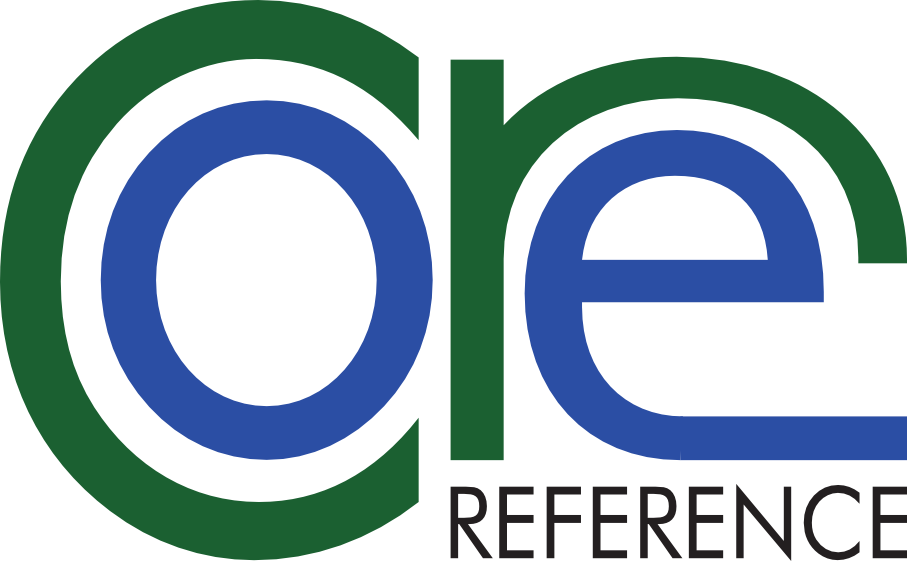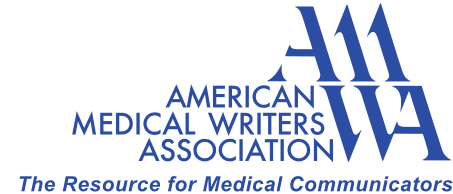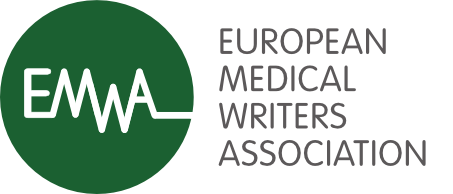March 2024
Medicines and Vaccines
CTR and CTIS
1. The EU Commission released three updated EU CTR guidance documents on 01 March 2024:
- EU CTR 536/2014 Q&A March 2024 Version 6.8
- Guidance for the Transition of Clinical Trials from the Clinical Trials Directive to the Clinical Trials Regulation (version 3)
- Auxiliary Medicinal Products in Clinical Trials
Clarification is provided that no additional documents (not even a need for a Summary of Product Characteristics, SmPC) are required for auxiliary medicinal products (AxMP) that are authorised and not modified relative to the marketing authorisation, and the AxMP does not need to be described in the application in CTIS. This welcome clarification will simplify Sponsor requirements.
The guidance relating to Transition Trials also now includes an Annex with a table of country requirements for Part II documents in transition applications. The evolution of this 'living document' should clarify requirements for sponsors as the information in the table increases.
2. A new version of the Quick Guide for Sponsors - Clinical Trials Regulation (EU) No 536/2014 in practice was released 1 March 2024 having been updated in line with the latest version of CTCG Best practice on naming of documents.
3. CTCG has published a new version (Version 4) of CTCG Best Practice guide for sponsors of multinational clinical trials with different Part 1 document versions approved in different Member States under the Directive 2001/20/EC that will transition to the Regulation (EU) No. 536/2014. As outlined in this version, dated 7 March 2024:
- Sponsor should propose a trial category but not apply for low-intervention at time of transition from CTD to CTR.
- Details on CTIS submission for specific situations: i) sponsor is not product owner of an IMP, ii) recommendations for IMPs and AxMPs, iii) when, under CTD, a study was regarded as an interventional clinical trial in some Member States and as a non-interventional clinical study in other Member States.
- Archiving rules and end of trial for CTD trials when some but not all Member States are included in transition.
4. A video recording of the CTIS Bitesize Talk held on Thur 29 February 2024 entitled How to submit a transitional trial in CTIS is now available.
5. CTCG has published a recommendation paper on principles of GLP for clinical trial applications under the CTR. A template table has also been made available for sponsors to use to provide the required information on GLP compliance.
6. EMA held an information day entitled “Clinical Trials Information System Webinar: Last Year of Transition” on 25 Mar 2024. The recording of the event should be available soon from here.
7. EMA Management Board: highlights of the March 2023 meeting can be found here. In terms of the EU CTR: “EMA updated the Board on upcoming milestones for clinical trials in the EU. The Commission acknowledged the important modernisation and simplification work of EMA on CTIS to allow an efficient use of the platform by Member States and sponsors. The revised transparency rules for CTIS will apply after their technical implementation in CTIS. The three-year transition period that began when the CTR became applicable ends on 30 January 2025. 20% of the transitioning trials have been moved to CTIS. Sponsors are strongly advised to submit the applications as soon as possible considering the time necessary for completing the authorisation procedure, which can take up to three months.”
8. A new CTCG Best Practice Guide for sponsors - first substantial modification Part I after CTR transition, version 1.0, dated 19 March 2024, has been released which provided further guidance on which documents to update in relation to the post transition substantial modification, and supportive templates for compiling that substantial modification, including the cover letter template and substantial modification template.
EU Regulatory
EU Pharma Legislation Reform
1. The European Commission put forward a proposal in April 2023 (see Q&A document here) to revise the current pharmaceutical legislation.
The key objectives of the revisions are:
- Ensure timely and equitable access to safe, effective, and affordable medicines in the EU
- Offer an attractive and innovation-friendly framework for research, development, and production of medicines in Europe
- Reduce drastically the administrative burden by speeding up authorisation times for medicines
- Enhance availability of medicines and mitigate shortages
- Address antimicrobial resistance
- Make medicines more environmentally sustainable.
Potential impacts include:
- Extended regulatory data protection periods for non-orphan drugs
- Stricter orphan designation criteria
- Incentivised development of novel antimicrobials
- Streamlined EMA committees and processes
- Enforcement of current environmental requirements for medicines
Check EFPIA’s position here.
The proposal has undergone consultation and is being discussed in the EU Parliament and Council.
2. On 19 Mar 2024, the Environment, Public Health and Food Safety Committee of the European Parliament adopted its position on the revision of the EU pharmaceutical legislations.
The proposed new regulation amends or repeals key existing legislations including:
- Regulation (EC) No 1394/2007 (ATMPs)
- Regulation (EU) No 536/2014 (EU CTR)
- Regulation (EC) No 726/2004 (medicinal products authorisation)
- Regulation (EC) No 141/2000 (orphan medicinal products)
- Regulation (EC) No 1901/2006 (medicinal products for paediatric use)
The members of the parliament are scheduled to debate and vote on this position during the plenary session on 10-11 April 2024.
EFPIA welcomes this development and issued a position statement Research based pharmaceutical industry calls on European Commission to develop comprehensive health and life science strategy. “The aim should be to reclaim Europe’s position as the hub for health R&D and to put European patients to the front of the queue for innovative new treatments and technologies.”
3. EMA released a revised draft “Guideline on quality, non-clinical and clinical requirements for investigational advanced therapy medicinal products in clinical trials.” The updated guidance covers gene therapy medicinal products, somatic cell therapy medicinal products, tissue engineered products and combined advanced therapy medicinal products (ATMPs). Comments can be submitted until 31 May 2024.
European Heath Data Space (EHDS) News
On 15 March 2024 the Council and the European Parliament reached political agreement on European Health Data Space. The new EU law will make it possible to: exchange and access health data across the EU and also make certain anonymised data available for research and innovation. Notably, the EHDS creates a strong legal framework for the re-use of health data for research, innovation, and public health purposes. A new factsheet on EHDS is available to download here.
ACT EU
The Accelerating Clinical Trials in the EU initiative (ACT EU) has established a multi-stakeholder platform to bring together key players for a better environment for clinical trials in the EU. Topics for discussion include clinical trial design, conduct, statistical analysis, proposals for regulation optimisation, transparency of data, and patient engagement.
EMA Guidance and News
1. The presentation from the Multi-stakeholder webinar on the HMA-EMA Catalogues has been published and includes details relating to the catalogues of real-world data sources and studies.
2. Tavridou et al have published the article “Genome-editing medicinal products: the EMA perspective” which delves into the EU regulatory considerations for genome-editing medicinal products. It provides valuable information on the type and number of products and their stage of development (pre-, early, or late clinical), the applicants (big pharma, SME), and the common questions that arise during regulatory interactions. The article is not open access.
3. 11 March 2024 draft Guideline on Quality, Non-clinical and Clinical Requirements for Investigational ATMPs in Clinical Trials. The guideline provides guidance on the structure and data requirements for a clinical trial application for exploratory and confirmatory trials with investigational advanced therapy medicinal products (ATMPs). The guideline is multidisciplinary and addresses development, manufacturing and quality control as well as non-clinical and clinical development of investigational ATMPs.
UK and MHRA News
1. The HRA has organised Make it Public Week 18-22 March 2024, which includes an online workshop on Thursday 21 March: Make it Public workshop - all clinical trials registered focusing on registering research and exploring the ways we can get all clinical trials registered.
2. UK HRA are publishing on their website a full list of clinical trials that received a favourable opinion from a Research Ethics Committee (REC) in 2022, with the registration details that they hold for them. There is an expectation that following a favourable opinion from a REC, the clinical trial sponsor will register this on a WHO compliant registry and update the HRA with these details. For full details, see here.
FDA Guidance and News
1. FDA Works to Make Informed Consent Easier to Understand. Too often informed consent forms are lengthy and difficult for potential research participants to understand. To improve this informed consent process, FDA has published a draft guidance titled “Key Information and Facilitating Understanding in Informed Consent.”
This draft guidance provides research sponsors, investigators, and institutional review boards with recommendations on how to implement two proposed requirements in the FDA proposed rule, “Protection of Human Subjects and Institutional Review Boards” and the corresponding current requirements under the revised Common Rule, including that:
- Informed consent begins with key information about the research presented in a clear and concise manner.
- Informed consent as a whole to be presented in a way that facilitates understanding of the reasons why someone might or might not want to participate in the research.
Comments are open until 30 April 2024.
2. The DIA has published an article by the Center for Information and Study on Clinical Research Participation (CISCRP) titled Clinical Trial Results on Clinical Trials.gov: Limited Value and Utility to Patients and Professionals. They found inconsistencies in the presentation of results and critical information missing.
3. The FDA, has published recommendations to sponsors developing human gene therapy products incorporating genome editing (GE) of human somatic cells. The guidance provides recommendations regarding information that should be provided in an Investigational New Drug (IND) application in order to assess the safety and quality of the investigational GE product, as required in Title 21 of the Code of Federal Regulations 312.23 (21 CFR 312.23). This includes information on product design, product manufacturing and testing, nonclinical safety assessment, and considerations for clinical trial design.
4. In response to citizen's petition filed by the Universities Allied for Essential Medicines North America (“UAEM”) looking for increased enforcement of results reporting, guidance on how FDA will prioritize enforcement actions, and a public dashboard of Preliminary Notices of Noncompliance, the FDA published its response letter.
Real World Data
FDA published draft guidance entitled “Real-World Evidence: Considerations Regarding Non-Interventional Studies for Drug and Biological Products” to provide recommendations to sponsors submitting a non-interventional study, also referred to as an observational study, to contribute to a demonstration of substantial evidence of effectiveness and/or evidence of safety of a drug. The guidance discusses the design and analysis of a non-interventional study that should be considered. Comments to be submitted by 20 June 2024.
Transparency and Disclosure Resources and News
A plain-language global standard has been developed by MRCT in collaboration with CDISC for research participants and those interested in developing easy-to-understand research materials. A webinar on 2 Apr 2024 (12-1pm ET) will cover “MRCT Center Clinical Research Glossary: New Words New Opportunities” and introduce 160 terms, images, and resources for patient-facing materials. You can register for free here.
Development Strategy News
1. ENDPOINTS are holding a webinar “Cell & Gene Day 2024” on 23 April, from 11-1pm (ET). Topics to be covered include scientific advances in cell & gene therapy, recent and anticipated approvals and clinical milestones, and an integrated approach to clinical trial design and execution. Webinar registration is free.
2. In an open access publication, Belsky K, et al. outline the challenges associated with paediatric drug development including those associated with study design. It can be viewed here.
Artificial Intelligence/Machine Learning
1. The EU Parliament passed the Artificial Intelligence (AI) Act on 13 March 2024. The legislation aims “to protect fundamental rights, democracy, the rule of law and environmental sustainability from high-risk AI, while boosting innovation and establishing Europe as a leader in the field.” AI systems used in healthcare among those considered as high-risk AI.
2. A recording of a webinar discussion on 18 Jan 2024, covering AI adoption, external data trends and cycle time challenges with insights into industry implications for the next 12 months can be accessed and watched for free here.
3. A white paper on AI augmented structured content presents a point of view with the aim of providing guidance for Biopharma companies implementing AI technologies. The paper entitled “Accelerating regulatory Submissions - AI augmented structured content” is available to view on LinkedIn.
4. FDA released a 7-page document on How CBER, CDER, CDRH, and OCP are Working Together on Artificial Intelligence & Medical Products. Direct download.
Medical Devices
Development Strategy
FDA-related
1. Aboy et al have published in February Beyond the 510(k): The regulation of novel moderate-risk medical devices, intellectual property considerations, and innovation incentives in the FDA’s De Novo pathway. The article presents “an analysis of the interaction between the 510(k) process — the historically dominant path to market for most medical devices— and the De Novo pathway, a more recent alternative that targets more novel devices, including those involving new technologies, diagnostics, hardware, and software.” It also discusses the “unique challenges and opportunities with respect to medical device software and AI-enabled devices, including considerations for intellectual property, innovation, and competition economics.”
2. Joshi et al have published the paper FDA-Approved Artificial Intelligence and Machine Learning (AI/ML)-Enabled Medical Devices: An Updated Landscape. The authors performed a “comprehensive analysis of 691 FDA-approved artificial intelligence and machine learning (AI/ML)-enabled medical devices and offer an in-depth analysis of clearance pathways, approval timeline, regulation type, medical specialty, decision type, recall history, etc.” The authors noted that the 510(k)-clearance pathway is commonly used among these devices.
3. The US FDA as the current chair of the International Medical Devices Regulators Forum (IMDRF) hosted the 25th Committee Meeting in Washington D.C. on 11-15 March 2024. The meeting aims to further the conversation on harmonising global medical device regulations.
4. The FDA has opened for comments the revised guidance document Requests for Feedback and Meetings for Medical Device Submissions: The Q-Submission Program. Q-submissions (“Q-Subs”), also known as the Pre-submission program, is a regulatory tool that allows medical device developers to request meeting and receive feedback from FDA experts on various aspects of the regulatory process.
5. The FDA has released the draft guidance on Evaluation of Thermal Effects of Medical Devices that Produce Tissue Heating and/or Cooling. The guidance covers a wide range of devices, including those utilising radiofrequency, imaging systems such ultrasounds and MRI, lasers, and even devices with electrical components that could generate heat during operation.
EU-related
1. The EU Medical Device Coordination Group released the MDCG 2024-3 Guidance on content of the Clinical Investigation Plan (CIP) for clinical investigations of medical devices. Clinical investigations are clinical studies for medical devices and the CIP is the study protocol. A word template for a CIP synopsis is added as an Appendix.
2. The European Commission has launched a public consultation on the first update of Scientific Committee on Health, Environmental and Emerging Risks (SCHEER) guidelines on the benefit-risk assessment of the presence of phthalates in medical devices. Some phthalates are carcinogenic, mutagenic, toxic to reproduction or have endocrine-disrupting properties.
EMWA Conference Valencia May 2024
If you are attending the EMWA conference in Valencia, don’t forget you can register for your free place and join the CORE Reference Team open session.
The CORE Reference Team will host a face-to-face, free conference session, on Thursday 9 May, 9:00-10:30 am. During this session, the team will outline available CPD resources and explain why CORE Reference content guidance is relevant and globally applicable. The team will provide attendees with important up-to-date information on regulatory reporting and public disclosure landscapes including a review of the new Policy 0070 Anonymisation Report template and will also give an update on the CORE Reference 2023 Utility Survey carried out in December 2023.
Due to the rapidly changing nature of the regulatory landscape the content of the session may change to reflect important late-breaking regulatory reporting updates.


